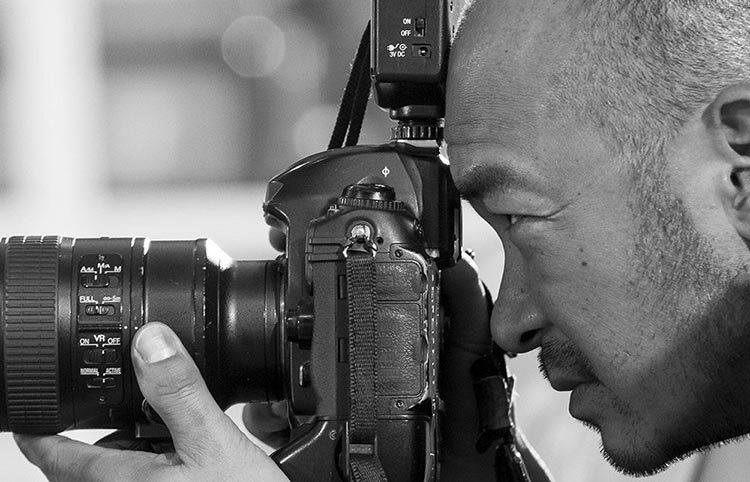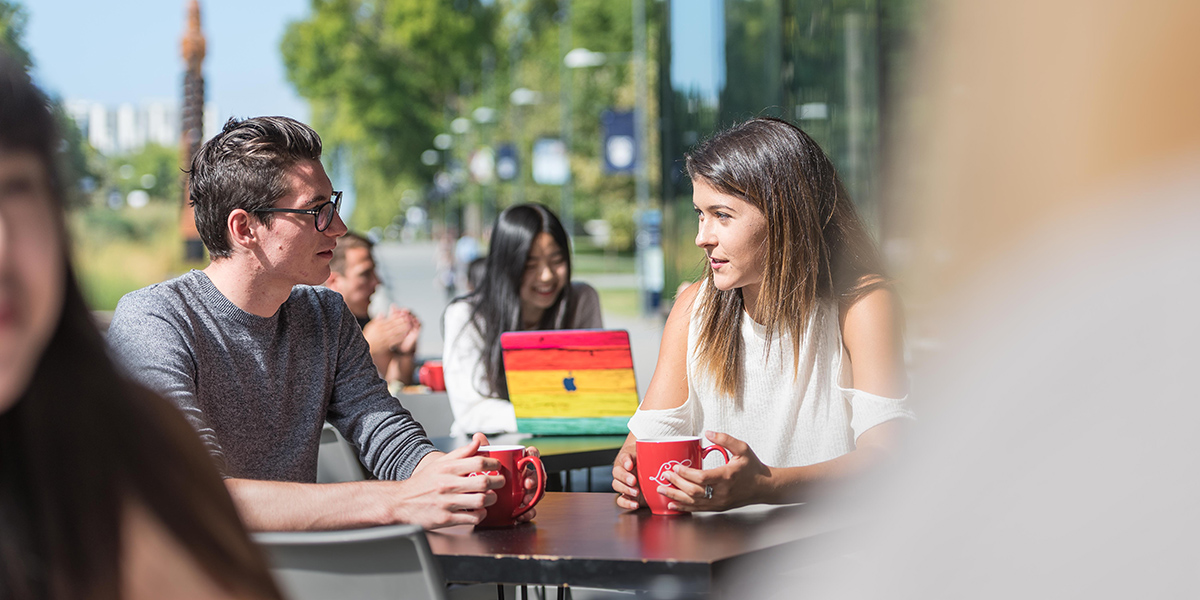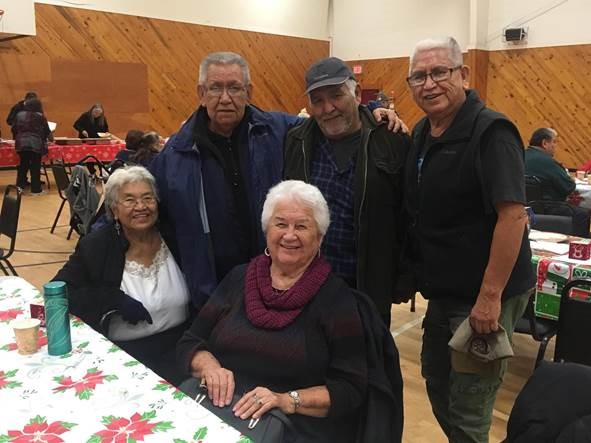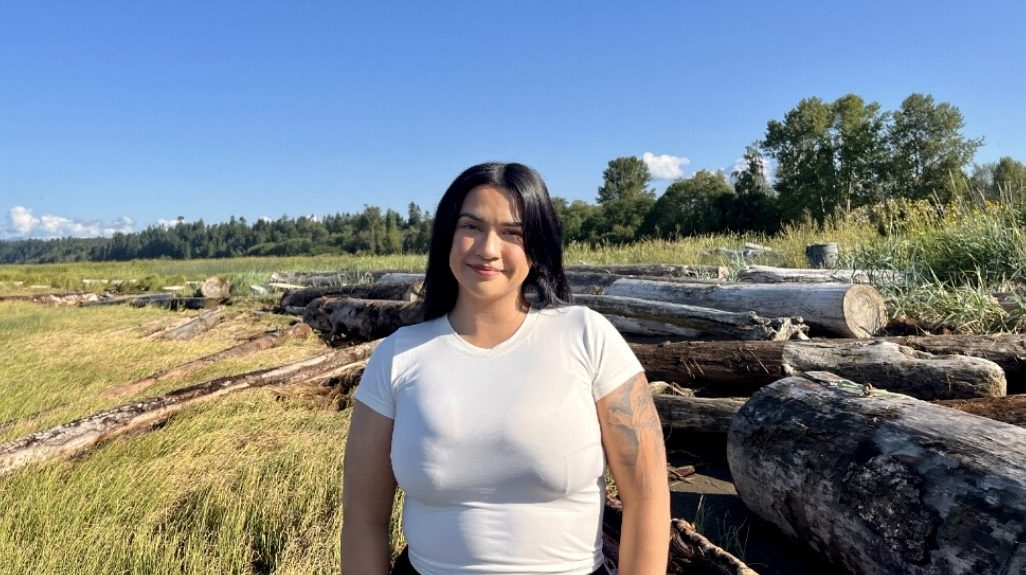

Richard used to feel as if his only options upon graduation were either teaching or law. However, his first term working for the Ubyssey taught him otherwise – that he could get paid for taking photographs!
Richard graduated from UBC in 1997 with a BA in Political Science (major) and History (minor). He decided to concentrate on these subject areas out of genuine interest and planned to apply his studies towards a career in teaching.
As a second year Arts student, he was worried about job prospects with his degree, especially since many of his friends were graduating from BCIT with specific job training. He felt his only options were teaching or law. However, his first term working for the Ubyssey taught him otherwise – that he could get paid for being a photographer!
From second year onwards, Richard became increasingly involved with the Ubyssey, first as a volunteer and then in a paid position as Photo Editor. He also joined the Photo Club and became involved with intramural sports.
Aside from his on-campus involvement, he further clarified his career goals by interviewing and talking with other freelance photographers. These combined experience helped to better prepare him for a career in the journalism industry. He is now the sole proprietor of his Freelance Photography business and the main freelancer in BC for the Canadian Press.
If you are interested in pursuing a similar career path, Richard suggests refining your photography skills, getting feedback from professionals, learning business sense, and getting involved with a student newspaper or Photo Club.
Why did you choose UBC?
It was the local or ‘home’ school. I got into other universities, but UBC replied first, and it made the most sense practically.
When did you start post-secondary education?
1992, the September following high school graduation.
When did you graduate from UBC?
1997, I took five years to complete my degree. Some terms I took four or five courses, and in others I took three.
How did you choose your major?
I stumbled into it. I took classes my friends were taking, and I had an interest in government and politics. I chose history as a minor in third year when I thought I was interested in Education. I needed to have a concentration in a teachable subject of study, so History fit with my thoughts of being a Social Sciences high school teacher at that time.
Did you ever change your mind about your Major/Minor?
Yes, I also had an interest in landscape architecture, but at that point I decided it was too late, and that I was too far along in my degree to change and start over again. There would have been lots of required courses and I would have had to go back into first year, and I didn’t want to do that.
Why did you decide to major in the subjects you chose?
I had a genuine interest in the subjects, so I took the courses that I liked.
Did you have an idea of what you would do after graduation?
Yes, I thought of law and education, but then started doing photography as a volunteer at the Ubyssey and loved it. After my first term of working at the student paper, I realized I could get paid for doing this and I wanted to pursue my dream.
Why did you think of Law and Education?
I had been a counselor in teen youth groups and coached hockey, so I thought I might enjoy being a high school teacher. I thought of law as being a good stepping-stone to being employed in a company’s upper management.
Many arts students seem to consider those same options, thinking that those are the only professional options that exist for BA grads. Was this a factor for you too?
Yes, especially after second year, I was worried. I had only worked in construction and I had no sales or marketing experience anywhere. I thought “what next?”
My sister went back to school after working as a bank teller, finished her degree and went back to a job as a bank teller with a degree. I believed that an Arts degree was worth something, but I didn’t know what.
What were your other interests in high school? University?
Photography was always at the back of my mind, but I never pursued it in high school. I enjoyed hockey, and hoped to land a sports scholarship that would put me through university, but it didn’t work out.
Were you involved in any extra-curricular activities while at UBC?
I did some intramural sports and got into photography by joining the Photo Club.
If so, how did you choose those activities?
I liked to play hockey and be active…the Photo Club became the basis of my social life while at UBC, especially after third year when I volunteered and then worked at the Ubyssey.
Did involvement in activities help you gain experience or skills that helped you to find or secure your current job?
Yes, absolutely! All of my learning was on the job. There was no formal training, all hands-on experience, and being involved has been the key.
It was through the Photo Club that another club member encouraged me to volunteer at the Ubyssey, which was a great experience. My friend also prompted me to apply for the job of Photo Editor when it came up at the Ubyssey and I took his advice and applied for and got the job.
Was volunteering a factor in getting hired there?
Yes, it was the turning point. I wouldn’t have been qualified otherwise, they knew me and knew my work, and I was right there when they needed someone.
Did you ever feel afraid or worried about what kind of career or work you could find with a BA?
Yes! Especially early on because many of my friends went to BCIT, which is a focused job training institution. These friends were finished after two years and looking for work as I was just heading into 3rd year. It was around that time though, that I got more involved in photography and the rest is history.
Did you plan to be where you are now career-wise?
No, not when I first started. After I graduated, I learned what it takes to be a freelance photographer. I knew it would be a small business and I decided to go for it and give myself three years to make it.
How important were your grades in terms of landing your current job?
Not important. I learned very quickly that an Arts degree is not like an Engineering degree, for example, where grades are very important to employers. No one had ever asked me in a job interview or work setting what kind of grades I got in university. Just having the degree completed was useful.
What is your job title?
Freelance Photographer.
What other job titles have you had leading up to this one?
Photo Editor at the Ubyssey. Before that, I was a volunteer photographer and before that I had been a laborer.
Can you give me an overview of your job description and some of the day-to-day tasks?
I do corporate photography and specialize in Editorial work, but you name it, I’ll shoot it. As I’m the sole proprietor of the business, there’s also lots of computer work, business skills, paperwork, negotiation skills, self-promotion, and cold calling. I use the Internet a lot to research and find contacts who might be interested in my work.
Do you think you developed any of these skills as an Arts student?
Yes, the BA taught me how to think imaginatively and independently, to use creativity and stay self-motivated.
What aspects of the job are most important and satisfying to you?
Variety. I do something different every day. Sometimes I know I have upcoming work months in advance. Sometimes it’s literally minute by minute or day by day. I’m okay with the uncertainty.
What aspects are least satisfying to you?
At the beginning, not knowing when the next paycheck would be. Rejection was also more difficult in the beginning.
How long have you been in business?
1999 to 2004. After graduation I continued at the Ubyssey for one more year and took English 301, a business and technical writing course that was very useful and practical.
How did you support yourself at the beginning?
I was still living at home, and received $500 stipend for working at the Ubyssey, but my parents’ help was important. Three years ago, in 2001, I secured an agreement with Canadian Press as their main freelancer in BC.
They have only one staff member in Vancouver, who I serve as back-up for. When he’s called away out of town or on vacation, I have guaranteed work. It’s been my main bread-and-butter for the last three years. Although there’s only work when there’s news that sparks national attention.
How did you land this agreement?
Persistence. The guy who was doing this job previously moved on to the Province Newspaper, so I called the staff photographer and pestered him until he agreed to meet with me. I bought a digital camera and was working within a few days after that.
If there were some aspects of the job you could change, what would they be?
More job security, benefits, vacation pay.
Did you know before you started the job what it would be like?
Yes. My father is self-employed as a Chartered Accountant, so I knew the benefits and drawbacks right away of being your own boss. No medical or dental, no set vacation. He helped me to learn the paperwork side too!
How did you do your research?
I interviewed and talked to other freelance photographers. There weren’t many mentors really, but I met with people after school for coffee to talk about what I was getting myself into. That was quite helpful.
I am now a mentor for the Ubyssey staff and volunteers because I never had one and it would have been easier if I had.
What salary range could most BA graduates expect in this field?
$30,000 -$40,000 per annum, but it can be higher or lower depending on how much hustling you do and what type of photography you do. Many paparazzi earn six figures. For me, as an Editorial specialist, I’m not rich but I’m happy.
What would you recommend that students interested in this field do while in school to better their chances of finding work in this field?
Refine your photography skills, learn business sense, and get involved with a student newspaper or UBC Photo Club. Just be taking lots of pictures and, most importantly, ask for feedback.
Be pro-active, show your work, and ask professionals for feedback. I went to a photographers’ conference and got help, and the business manager at the Ubyssey newspaper was really helpful too.
What is the worst thing a student could do?
Be lazy and unmotivated. Just going to classes and not getting involved. Not being willing to grow and stretch limits. Stagnancy shows up and really stands out in photography.
Looking back, is there anything you would do differently while at university?
The thing I kick myself over is not getting involved earlier in Photo Club. I knew I liked taking pictures as a kid, but in high school I didn’t have time to get seriously involved.
Photo Club was great, it had a low annual membership fee, I met more people who had a common interest, got more information, took pictures, learned along the way, and then started getting paid for it.
Any advice to current students?
Find a focus or niche, develop it, and work hard at it. The job market can be competitive, so seize opportunities as they can go by quickly.
In my case, I had graduated and signed up at Loyalist College in Belleville Ontario for a photojournalist diploma. But when the opportunity at Canadian Press came up I jumped on it and left the program only three weeks after it started to sign on.
What I learned in that few weeks of photojournalism college was that I already had the skills I needed to make it on my own and that the course material was redundant.
This really helped boost my confidence because I had already developed the skills through my Bachelor’s degree and my volunteer and paid work experience. All that I needed to do next was believe in my goal and make it happen.


